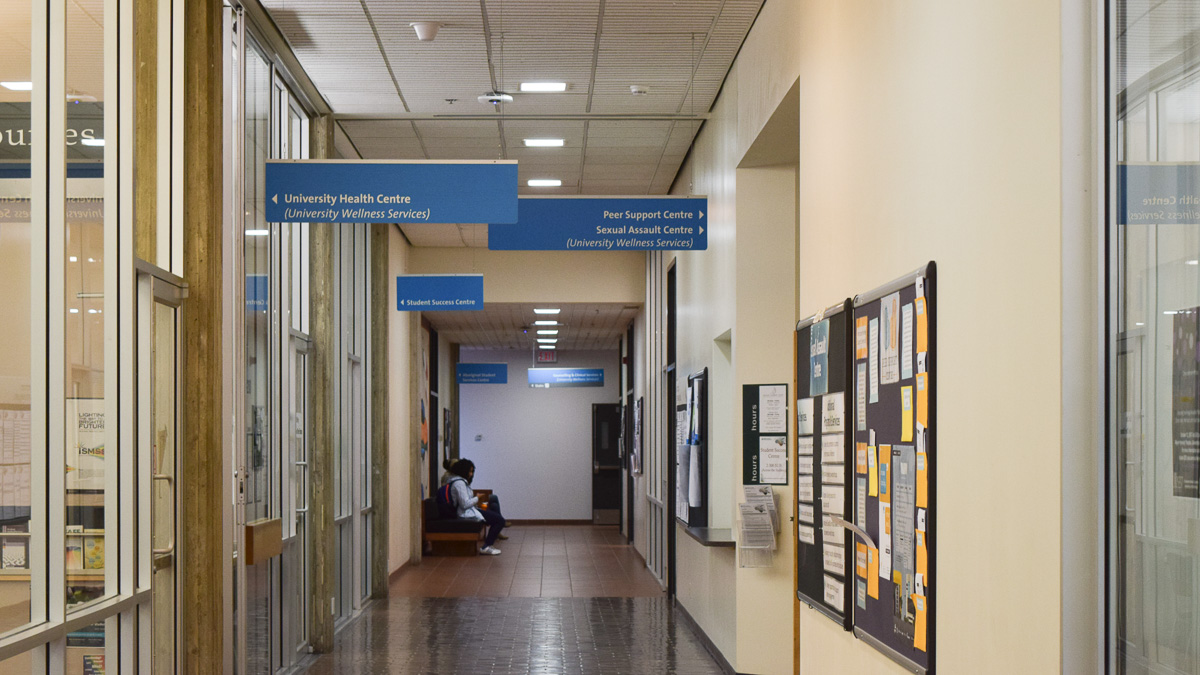How the pandemic is creating a mental health crisis among international students
The pandemic has only further highlighted the need for better mental health supports for international students on campus
 Chantal Yoon
Chantal YoonThis guest column is written through a partnership with the University of Alberta International Students’ Association and The Gateway.
Trigger Warning: This article discusses topics related to mental health and illness that some readers may find upsetting, such as suicide and depression. Resources are available at the end of the article.
The disruption and high stress the pandemic has brought to people are causing an increase in mental health problems. According to the Public Health Agency of Canada, suicide is the second leading cause of death in people from 10 to 29 years old. For international students with little to no support, the COVID-19 pandemic has worsened the burden we carry, exacerbating our vulnerability to mental health issues while isolating us from potential support mechanisms.
The economic impact of COVID-19 and the lack of part-time jobs has increased the financial insecurity among international students. Between the high tuition fees and struggling to pay for housing, despair has increased, leaving us prone to exploitation by unethical employers and landlords. Another cause of ongoing stress is the constant concern about the fate of loved ones at home with the rise of COVID-19 cases. The pandemic has been a perfect storm to impact our mental health. The overwhelming sources of distress, isolation, the intensified anxiety, depression, and loneliness are deeply related to suicide rates in international students.
Studies and polls made throughout the world to higher education students have shown that university and college students have reported a worsened mental health amid the pandemic. One of these studies found that Asian, Latinx, and Black students have lower rates of psychiatric diagnoses but similar or higher suicide attempts rates than Caucasian students. Furthermore, one in ten students reported seriously considering suicide, while one in fourteen stated self-injury as a way to cope with emotional pain.
There is an urgent need for increased mental health support for students. Waiting times for counselling are sometimes very long, and with everything moving to an online setting, the support services available are not enough. Considering the stigma and shame associated with mental distress for some international students, it’s vital to proactively normalize psychological well-being and facilitate seeking help. We also need culturally informed programs designed to enhance mental health awareness in students from minority groups.
If you are experiencing mental distress, suicidal ideation, or self-injury, please reach out for help. I know it’s scary, but know that there are people who want and can help. I’ve suffered major depression since I was a teenager, and I tried to commit suicide in the past, so I know how it is to feel alone, misunderstood, or a burden (spoiler alert! You’re not alone nor a burden.) However, once you get help in the form of therapy, medication, lifestyle changes, and learning to have self-compassion, the world won’t look as gray as it does now.
Being an international student is a big challenge. Being away from family, adjusting to a different culture, the academic and economic pressures, and the uncertainty of the pandemic, now more than ever, we need to find support and build a community to deal more efficiently with the intensified mental health hurdles. With this in mind, ISA has a discord called The Nest that aims to provide a place for international students to hang out, talk, meet new friends, and build a community, especially needed now.
If you’re concerned about a friend and think they might have suicidal thoughts, these are some of the warning signs to look for:
- Plan to or talk about harming or killing themselves or others
- Talking or writing about death, dying or suicide
- Increased substance use (alcohol or drug, including prescription medication)
- Feelings of helplessness or hopelessness
- Feelings of being trapped, like there’s no way out
- Giving away possessions
- Withdrawal from friends, family, society
- Doing risky or dangerous things, such as drunk driving
Remember that despite the current situation with the pandemic, you are not alone. Try reaching out to a friend, a family member, or a mentor. You can also call the crisis line.
Edmonton and Northern Alberta Crisis Line (24/7):
1-800-232-7288, or (780) 482-HELP (4357)
Canada Suicide Prevention Service (24/7):
1-833-456-4566
The Addiction and Mental Health Help Line (24/7):
1-866-332-2322 (toll free within Alberta)




